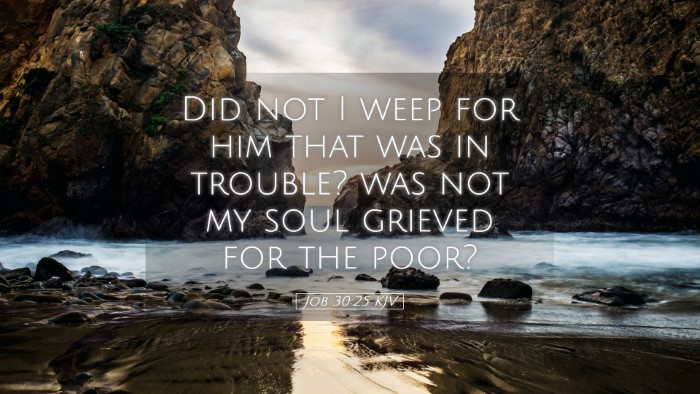Old Testament
Genesis Exodus Leviticus Numbers Deuteronomy Joshua Judges Ruth 1 Samuel 2 Samuel 1 Kings 2 Kings 1 Chronicles 2 Chronicles Ezra Nehemiah Esther Job Psalms Proverbs Ecclesiastes Song of Solomon Isaiah Jeremiah Lamentations Ezekiel Daniel Hosea Joel Amos Obadiah Jonah Micah Nahum Habakkuk Zephaniah Haggai Zechariah MalachiVerse
Job 30:1 Job 30:2 Job 30:3 Job 30:4 Job 30:5 Job 30:6 Job 30:7 Job 30:8 Job 30:9 Job 30:10 Job 30:11 Job 30:12 Job 30:13 Job 30:14 Job 30:15 Job 30:16 Job 30:17 Job 30:18 Job 30:19 Job 30:20 Job 30:21 Job 30:22 Job 30:23 Job 30:24 Job 30:25 Job 30:26 Job 30:27 Job 30:28 Job 30:29 Job 30:30 Job 30:31

